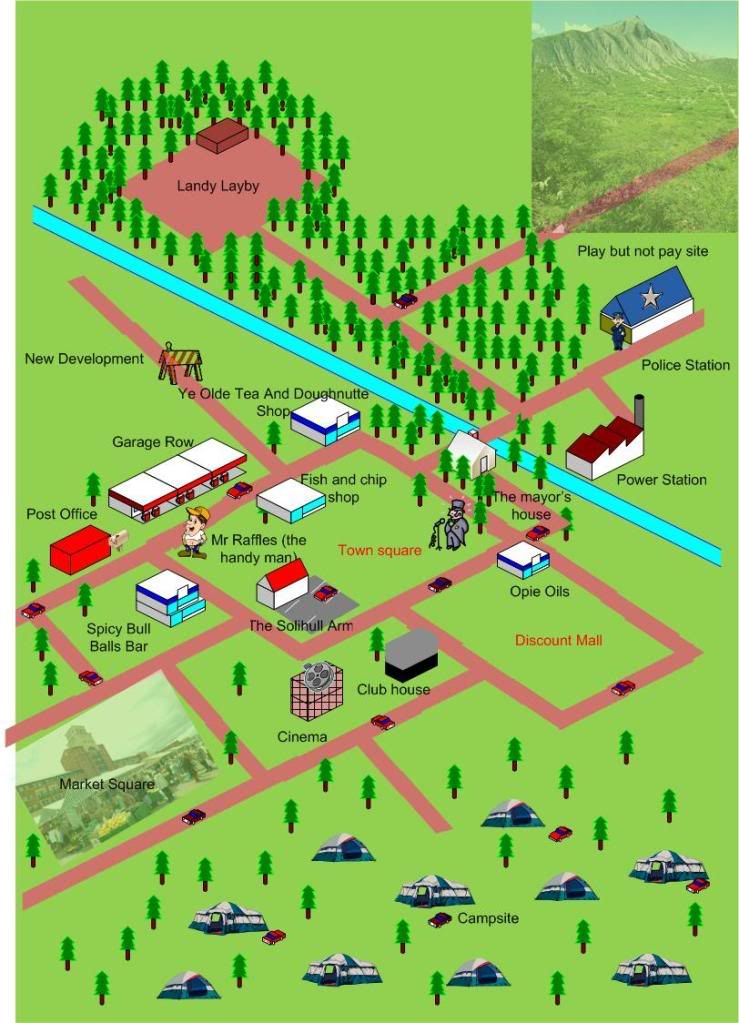That's not from me ... I'm just passing along the message.
Don't believe me? See for yourself:
I'm in the process of looking for apartments right now, and a ton of them just have horrible-quality pictures that tell me nothing about the place. Is there some incentive for people to keep on doing this?One search on Craigslist shows exactly what the questioner means. Here's one example (posted by a professional management company):
What is that supposed to tell me as a prospect?
Now I'm no photography expert, but it seems to me like quality photos shouldn't be that big of an issue today, even if a professional photographer isn't in the budget.
Some Basics
I dug into this a bit further, looking for some basic tips about taking better quality photos. It didn't take long to find some great resources. Here's an example of some suggestions from Apartment Therapy:Light: Take advantage of daylight. When using artificial light, use as much as possible. Don't use a flash as it can create shine and glare...Great stuff. Now let's put some of these tips to use.
Wide Shot: Stand as far back as possible in the corner of a room. Try to center the good stuff in the middle and cut out as much of the ceiling as possible. If you don't have a wide-angle lens and the room is too small to capture all at once, then do a piece at a time.
Close-ups: Don't zoom in but rather step up to whatever you think is an interesting detail in your apartment. Frame it well, meaning make sure that there are other things in the photo that complement it. It is also a good idea to get above the scene rather than meet it at eye level.
Focus: If you don't have a tripod, try to lean the camera on something stable each time you take a photo. Clarity is crucial.
Perspective: Don't take all your photos from the same vantage point. Stand on a chair, lay down on the floor, get on your knees...
Taking Better Apartment Photos
We need to make it as easy as possible to take better photos, and we also need a (relatively) readily-accessible device that doesn't require a physics degree to operate.A quick look at Flickr shows that the most popular camera used by photographers contributing to the site is a device a number of us have in our pockets right now -- the iPhone.
THIS is great news. First, because it's in your pocket, ready to fire at a moment's notice. Second, it's a respectable camera, especially if you have the latest edition (the 4S), so no need for a high-end DSLR. Third, it has a library of awesome apps to help you take better photos and share them online. Oh, and it shoots HD video, too. (I've focused on the iPhone for the purpose of this post, but there are also many photo-related apps available for Android phones ... try starting here.)
Get More Out of Your Cameraphone
So how exactly do we use the iPhone to take better pictures? Just like with any other camera, the right accessories can make all the difference. Here are just a few of the apps you might want to try to get more out of your iPhone camera:Camera+: Features include an image stabilizer, exposure editing, cool effects and more.
Instagram: Add gorgeous filtered effects or tilt-shift blur. Share photos to other popular social networking sites.
Big Lens: Edit photos by setting the aperture, changing periphery blur levels and adjusting background to add a very professional look to your images.
Gorillacam: Take time-lapse photos, use the timer or use the built-in level to make sure your photos are straight.
Color Splash: Give photos a dramatic look by converting them to black and white, while keeping your chosen details in color.
Photoshop Express: Basic photo editing, including cropping, filters, effects, borders and more.
Flickr: Share your amazing photos with the world, and geo-tag your images to let people know where to find you.
Not one of these apps costs more than $1.99 in the iTunes App Store, and many of them are free.
Beyond the software, there are many external lenses and other accessories that you can add on to get even more out of the iPhone camera. (Tom Martin offers some great tips in this presentation.)
With a little bit of time & effort and a slim device that many of have in our pockets, we can significantly improve the photos we're posting on our property websites, ILS ads and Craigslist posts.
Now it's your turn. What tips do you have to take better property photos? What's your favorite camera or photography app?
Want to see some great photos? Check out some of the most interesting photos of apartments on Flickr.

















 You might find this really crazy, but we would've been out of addresses a long time ago except for one thing.
You might find this really crazy, but we would've been out of addresses a long time ago except for one thing. 

